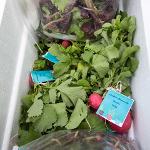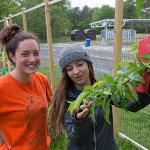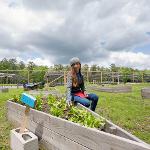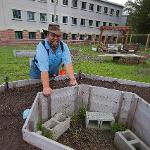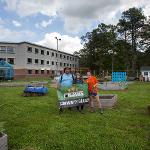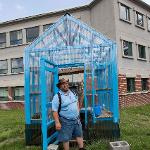Stockton Community Garden Hosts Hammonton Farmworkers for BBQ
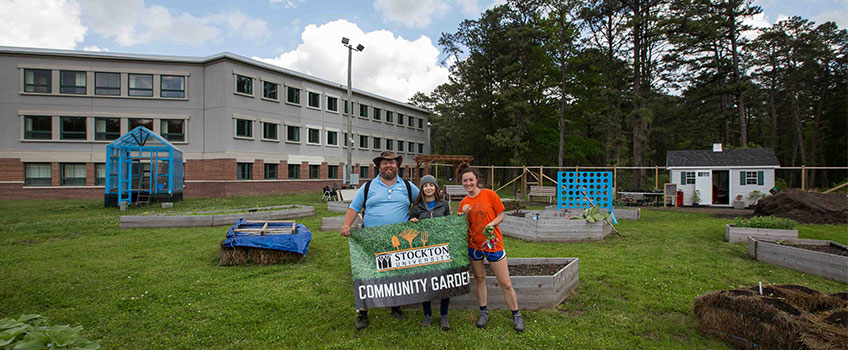
Caitlin Clarke got an idea after looking at a pile of excess cotton T-shirts left over from the first season of Stockton’s Trading Post, a clothing exchange and thrift shop for students.
As sustainability coordinator, Clarke makes the most of items—always brainstorming
ways to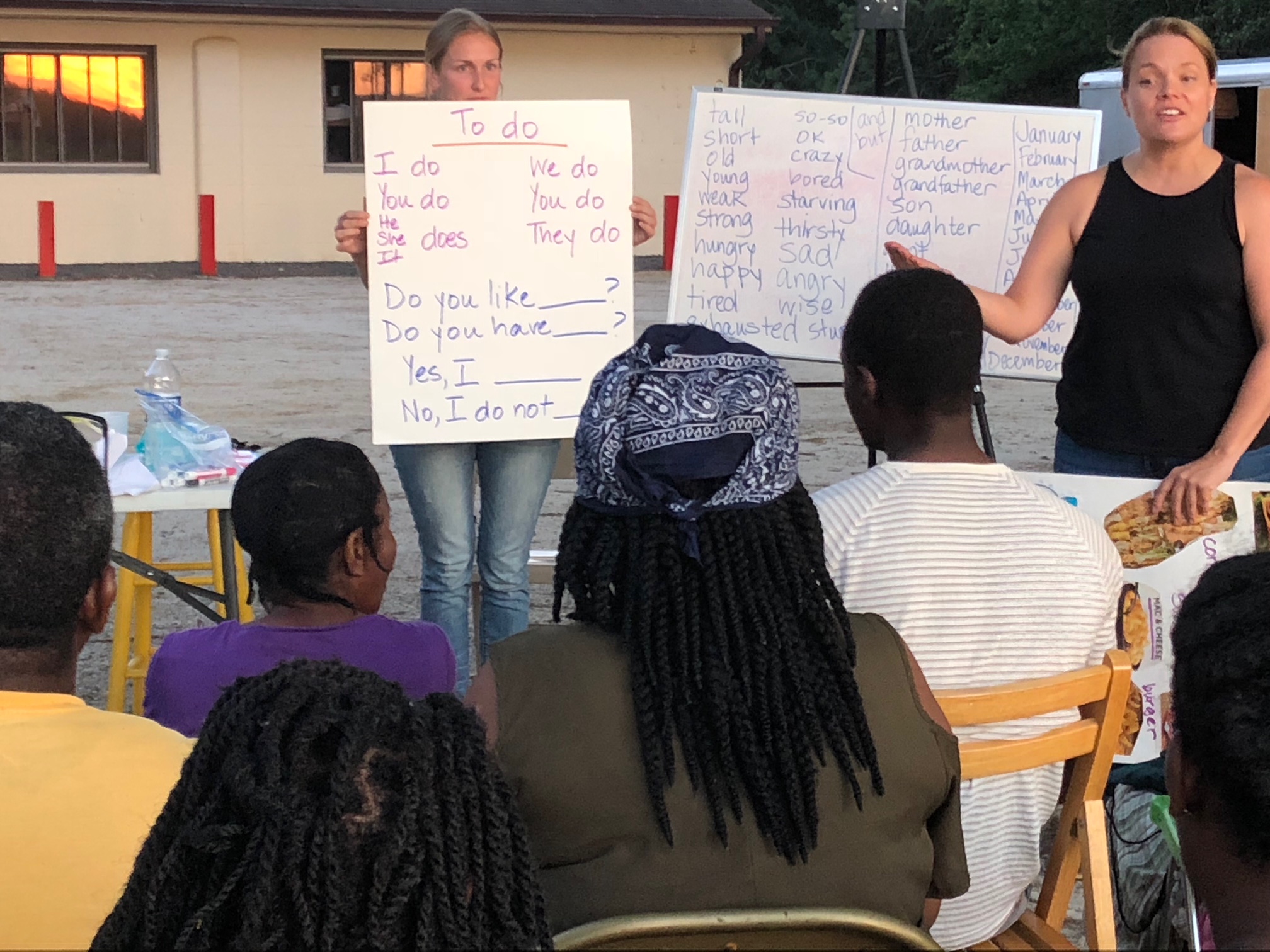 reduce, reuse and recycle—and saw an opportunity to help seasonal farmworkers by
sending them clothes they could wear for work.
reduce, reuse and recycle—and saw an opportunity to help seasonal farmworkers by
sending them clothes they could wear for work.
A phone call to the Migrant Worker Outreach program resulted in a new purpose for the T-shirts and an unexpected opportunity to teach English as a Second Language (ESL) to a group of Haitian farm workers in the evenings.
Clarke volunteered to help teach the ESL classes after work and got to know the farmers.
At the culmination of the summer ESL session, Clarke, Joe Rubenstein, professor of Anthropology, and the Stockton Community Garden hosted a garden barbecue for the students to practice English and network with the Stockton student gardeners.
Jersey-fresh produce grown, harvested and cooked by the students was on the menu.
A special moment was shared when the ESL students identified an 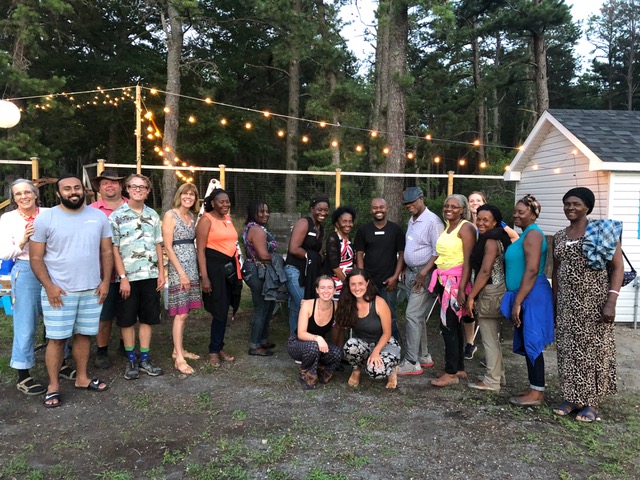
The farmers, familiar with the herb that grows in Haiti, explained that it’s used in tea and aids digestion.
The dinner was a great way for the farmers who work long days seven days a week to relax, said Clarke.
Those who have driven by the Stockton Community Garden have likely noticed the dramatic progress this season led by David Lockwood, a 2018 Sustainability graduate now managing the garden with the help of interns and volunteers.
Once the site of a trailer that served as a Sustainability Lab, the plot of land located
at the end of Parking Lot 7 near Louisville Drive is now a vibrant, collaborative
space for students who want to get their hands dirty and grow their own food.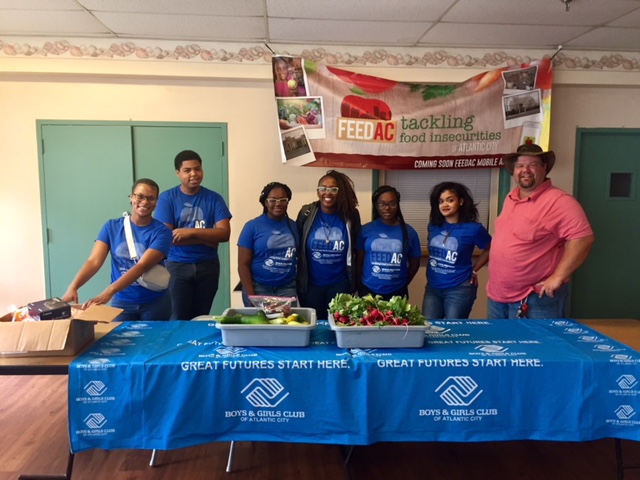
The season’s harvested produce, exceeding 100 pounds so far, has been donated to the Community Food Bank. Students also participated in the Atlantic City Boys and Girls Club’s pop-up food bank at New York Avenue School as a produce vendor and hosted a barbeque for the AAUW Tech Trek campers.
A longterm goal of the Community Garden is to tackle food insecurity in Atlantic City with teh help of AtlantiCare, the Community Food Bank of New Jersey and teh Boys and Girls Club of Atlantic City. Students taking the Anthropology Senior Seminar course with Rubenstein will work with these partners at the New York Avenue apartments to provide food and assistance to residents on a regular basis.
The Community Garden began as a course taught by Rubenstein. Students mapped out a plan and worked with the Office of Plant Management on grading the plot, building raised beds and installing a fence (a game-changer in keeping the produce from becoming deer food).
Stop by the Community Garden this summer to see the progress.
Story and photos by __ Susan Allen

